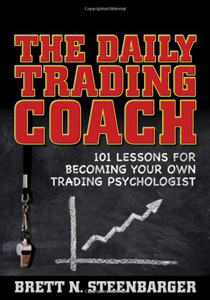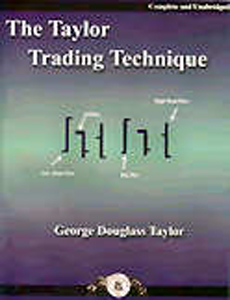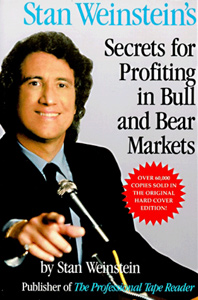The Influence of Market Rumours

Further Reading
There is an old saying "Buy on the Rumour, Sell on the News" which relates to how investors and traders typically anticipate upcoming market events and either sit on the sidelines or open up a trade (or “Buy on the Rumour”) and then when the news is released into the public domain, the traders close their trades to take profits (“Sell on the News”). Rumours play an integral part or natural market flow. The general public have access to dates when major announcements are made, however there are also industry insiders (for example fund managers and other financial trading companies) who typically have dedicated research teams to closely follow and analyse companies. These people have access to more information than the retail trader.
This week, SMH revealed a rumour that George Soros may have been shorting the Australian dollar. The forex market is heavily influenced by news. The AUD/USD currency pair is particularly sensitive to interest rate announcements. There was an interest rate announcement by the Reserve Bank of Australia (RBA) on Wednesday May 8 at 2.30pm (it is publicly known that interest rate announcements are always released at 2.30pm (Sydney time) on a Wednesday) where they announced that the interest rate was to be cut by another 25 basis points or 0.25%. After the announcement was released, the dollar dropped.
(George Soros is a Billionaire trader who famously shorted the British Pound, buying up the German mark in 1992, a day which is referred to as the Day Soros broke the Bank of England, earning him US$1.8 billion)
In the forex (foreign exchange) market, interest rate announcements are well known mechanism which influences currencies. Different markets also offer up other levers which revolve around the financial health of a country and its currency. These metrics, aside from the interest rate usually include new GDP numbers, country productivity and employment levels. In the AUD/USD currency pair, when the Australian interest rate falls, the Aussie dollar usually falls. When the interest rate rises, the Aussie dollar rises. Why is this? This is because as international investors move their money into Australia as the interest rate rises, they increase demand for the AUD. When interest rates fall, investors are moving their money overseas, hence lessening the demand for the AUD.
When rumour that George Soros was shorting the dollar hit the press, it gave reassurance to some people who would have already been looking at shorting the dollar anyway. Given the way global markets have operated in recent times as well as the Australian economy, there was a high probability that the RBA would have shifted the interest rates down.
A search for "trading rumours stockmarket" on Google reveals Hot Copper to be among the top 3 positions. Hot Copper is an Australian trading forum where professional and amateur traders discuss all things trading with a particular focus on the Australian stock market. There are dedicated pages i the forum for each company listed on the ASX (a good idea to read up if you are looking to buy into a stock) as well as general topics around politics or other discussions about other trading instruments like CFDs, Forex Trading and Warrants, ETOs and MINIs.
Traders seem to love rumours. For amateur, at-home-traders, their opportunity to take part in the rumour mill is limited since they do not work in the finance industry, they usually aren’t privy to a lot of information flowing around the stock broking and trading industry. These traders usually subscribe to the retail information services which provide stock recommendations based on fundamental or technical analysis.
What kind of rumours could be floating about the stocks and other trading securities? (Usually these are secret, in-confidence level of information, things which certainly have the power to influence the price of the underlying security)
- Who - if George Soros is in the game, or other trading superstar (like Warren Buffett) are rumoured to have traded or invested in something – the market is bound to react.
- M&A activity: news of any mergers and acquisitions, buyouts or takeovers could be advantageous
- Advanced company results
- Company strategy
- Advanced knowledge in discoveries and findings (in reference to mining companies or R&D companies)
Rumours could be linked to market manipulation, depending on the motive of the initial party which started it. Here are some examples of market manipulation strategies that market watchdogs (like ASIC) actively monitor:
- Bear Raid: Heavy short selling in order to deliberately push a stock price down.
- Wash Trade: Buying and selling the same security/stock for the primary purpose of creating trade activity and increasing the stock price.
- Runs or Painting the Tape: When a group of traders create activity in conjunction with rumours with the motive of pumping up the share price (or reducing it)
- Ramping: Trading to give the impression of heavy trade volume in order to artificially raise share price.
- Churning: Buy and sell orders placed at the same time to show an increase of activity to attract more investors and hence increase the price.
- Pools: When a group of traders assign one manager to trade in a single specific stock.
- How to Trade Forex and Gold Options
- How to Trade the Gold Price and Profit!
- Forex Trading the EUR/USD Pair € EURO and $ US Dollar
- How to Trade Stock Market Indices S&P500
- How to Trade Crude Oil
- Forex Trading Psychology
- What Are Broker Recommendations?
- Free Tickets to Trading & Investing Seminar & Expo ($18) Brisbane 2013
- Stock Calc App
- All About Warrants
- Introduction to Exchange Traded Funds
- Introduction to Exchange Traded Funds: Features
- Introduction to Exchange Traded Funds: Domestic ETFs
- Introduction to Exchange Traded Funds: International ETFs
- Exchange Traded Commodities
- Australian Stock Scan
- Australian Online Share Trading
- List of Trading Books
- Interesting Thoughts about the Australian Dollar
- What's the Meaning of Hawkish?
- Do You Know How To Use the P/E Ratio
- Trading, Religion and Politics - Do They Have Anything in Common?
- Shares that are Volatile that Double and Half in the Short Term
- Telstra (TLS) T3
- Margin Call by E-mail
- The Cost of Holding a Position
- Lack of Disclosure: Compensation from ASX Listed Company
- Unrealistic Returns and Benchmarks
- CMC Markets Down
- Quality versus Quantity Forex Trading
- Woolworths 1H Sales $30.7bn up 3.2%
Date added 31-01-2013 - ASIC Fines CommBank's CommSec
Date added 25-09-2012 - Industry Super Network Calls to Ban High Frequency Trading (HFT)
Date added 22-09-2012 - NAB Launches Online Share Trading Platform
Date added 19-09-2012 - Reserve Bank of Australia Says 23 Countries Holding AUD
Date added 18-09-2012 - Australia Post Digital Mailbox
Date added 10-09-2012 - Winners and Losers of Trading for Week 2
Date added 16-01-2012 - 2012's First Week of the Best and Worst Traded Stocks
Date added 09-01-2012 - 2011's Last Best and Worst Traded Stocks
Date added 05-01-2012 - Best and Worst Pre-Christmas Traded Stocks
Date added 30-12-2011 - Trading Winners and Losers for Dec. 12-16
Date added 19-12-2011 - Best and Worst Traded Stocks for Dec. 5-9
Date added 13-12-2011 - Top 3 Best and Worst Traded Stocks
Date added 05-12-2011 - ASX Glitch Trading Halt
Date added 27-10-2011 - Worst Trade Stocks (and the Best)
Date added 06-08-2011
Top 150 Public Companies Listed on the Australian Stockmarket as at 29/05/2009
- BHP Billiton
- Westpac Banking Corporation (WBC)
- Commonwealth Bank of Australia (CBA)
- National Australia Bank (NAB)
- Telstra (TLS)
- ANZ
- News Corporation (NWS)
- Woolworths Limited(WOW)
- Woodside Petroleum Limited (WPL)
- Rio Tinto
- Westfield Group (WDC)
- Westfarmers Limited (WES)
- QBE Insurance
- CSL
- Newcrest Mining Limited (NCM)
- Origin Energy Limited (ORG)
- Santos Limited (STO)
- AMP Limited (AMP)
- Macquarie Group (MQG)
- Foster’s Group Limited (FGL)




